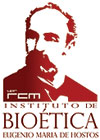Imaging Global Health with Justice


Professor Lawrence O. Gostin
Universidad de Georgetown
Conferencia: Imaging Global Health with Justice, 16 de enero de 2014
Public Health Ethics: A Colloquium with Prof. Lawrence O. Gostin
January 17, 2014 - Summary prepared by J. Ferrer
Professor Gostin proposed to cover three main topics as part of his presentation, as a starting point for the colloquium: Public Health Ethics, law as a tool for public health, and public health’s legitimate paternalism.
PH Ethics
Ethical analysis of policies requires a perspective very different from clinical ethics. In PH we are concerned with improving the health of populations. When we want to evaluate a PH intervention we need to ask ourselves: Will it achieve its goal? At what cost to individuals’ values and autonomy? PH inevitably infringes upon some interests of individuals. In Ethics (Bioethics), very rarely we have one correct answer, but we force people to think and to justify. It is important to remember that values such as autonomy are not absolute.
In PH Ethics there are several questions that need to be considered: How serious is the infringement? What are the values implied in the situation? Are there any less restrictive ways to achieve the desired objectives? Besides autonomy issues, there are justice issues such as equity that need to be considered. Equity has to do with proportion. If you infringe the interests of a given population, are the benefits to that population proportionated to the burdens?
Law as a tool for PH
There are two elements, quintessential to PH, which make it very different from Medicine: the preventive approach and the population-based approach. We need to consider now the legal instruments at our disposal to promote PH, such as taxation, subsidies, health information, built environment, direct or indirect regulation, deregulation… The question always is what works in the situation? Taxation has worked with tobacco reduction. There has been some questions about tobacco taxation because of its regressive nature. However, the benefit of smoking cessation seems to justify the intervention. Examples of built environment are parks, sidewalks, and lightning. Sidewalks may encourage people to walk instead of driving, with health benefits for all involved (exercise, cleaner environment). Examples of direct regulation are seat belts and labeling of foods for sugar, trans fat regulation, etc. As examples of deregulation, Gostin cited doing away with laws prohibiting sterile injection equipment.
Paternalism and PH Law
The utilitarian-libertarian tradition has insisted on Mill´s harm principle as the guiding principle to restrict freedom of action. Gostin says that it is stupid because it falsely supposes that individuals are free and well informed. It forgets that people live in communities and cultures. There are choices about food, exercise, smoking, etc., that are largely conditioned and even determined by culture, environment, educational opportunities… Government should not be agnostic about the health of the population. It should make it easy to do the healthy thing. Paternalism is thus justified in PH interventions.
Website Visits: 1153
